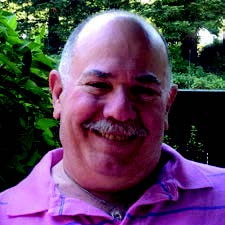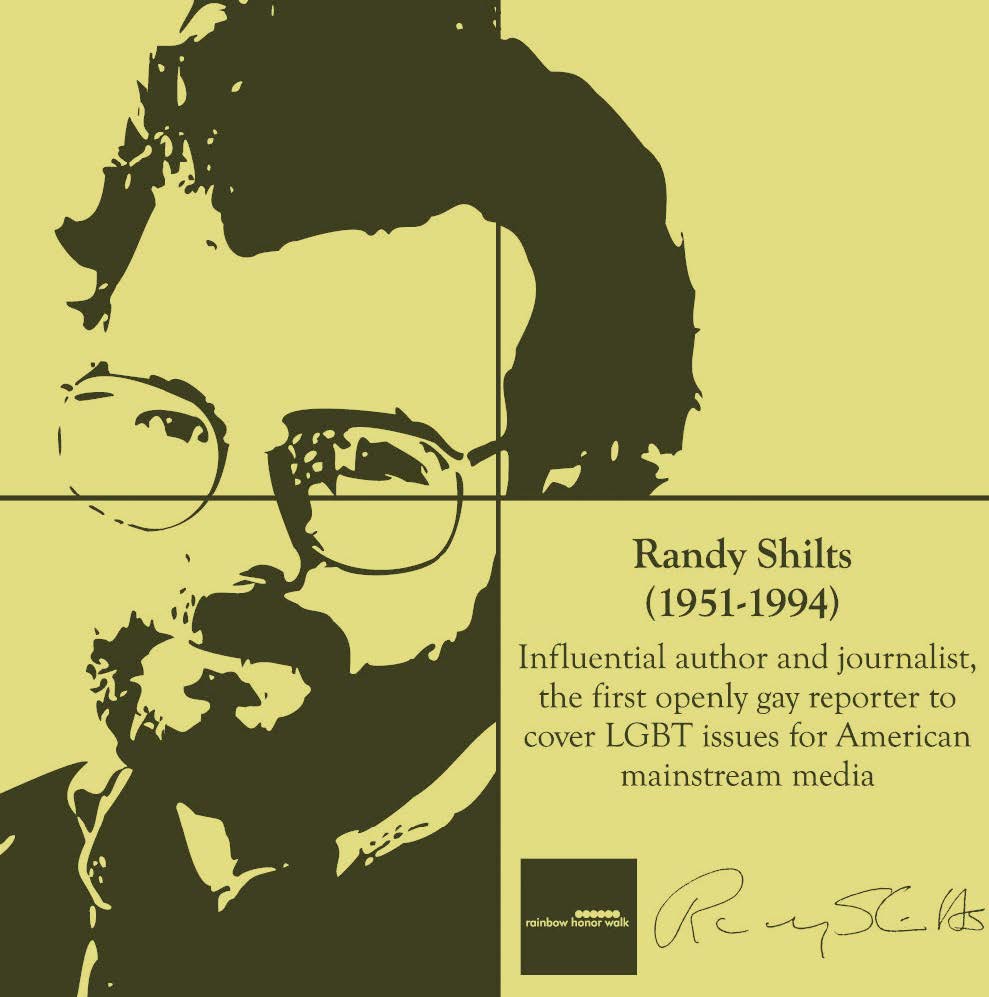 Before AIDS had its name, before it had the attention of the media, the government, or even the gay community, Randy Shilts was bringing information about it to the notice of the public. Reporting for the San Francisco Chronicle, where he was the first openly gay reporter to be hired by a major American newspaper—and the first to cover the gay community full time—he eventually persuaded his bosses to let him focus exclusively on the malady.
Before AIDS had its name, before it had the attention of the media, the government, or even the gay community, Randy Shilts was bringing information about it to the notice of the public. Reporting for the San Francisco Chronicle, where he was the first openly gay reporter to be hired by a major American newspaper—and the first to cover the gay community full time—he eventually persuaded his bosses to let him focus exclusively on the malady.
One of the few journalists to recognize the growing epidemic as an important national issue, Shilts discovered there were, in fact, two important stories not being reported: the tragedy of human suffering and the lives being destroyed in their prime; and the unmovable indifference of government, medicine, health care, and social systems to a major—and growing—public health crisis.
“With a passion I have rarely seen equaled in the business, Randy pushed, wheedled and cajoled until his AIDS stories made their way from the back pages of the Chronicle to the front page,” said Susan Sward not long after his death. “He hurled himself into the stories he wrote.” Shilts himself was more modest about his accomplishment. “Any good reporter could have done this story,” he said later, “but I think the reason I did it, and no one else did, is because I am gay. It was happening to people I cared about and loved.”
The work Shilts was doing to report the AIDS epidemic led him to write And the Band Played On. Published in 1987, when a diagnosis of AIDS still meant certain death, the book was the first serious attempt to chronicle the disease in the United States. More importantly, however, Shilts detailed why and how so many institutions and organizations, both public and private, designed “to promote the general Welfare, and secure the Blessings of Liberty to ourselves and our Posterity,” by doing so little for so long, enabled the disease to spread unrestrained during the first five years after its appearance: their loathing of the gay community; their focus on idealogical preaching instead of public health; petty squabbles; turf wars; scientific jealousies and rivalries; self-serving interests; and failures of political vision, principle, and equity.
 Born in 1951, Shilts spent his entire career in investigative journalism, almost always writing about gay issues. After earning his degree in journalism the University of Oregon, he went to work as the northwest correspondent for The Advocate, then moved to the Bay Area to cover city politics and gay issues for local radio and television stations. He joined the staff of the Chronicle just before his first book, The Mayor of Castro Street, was published in 1982.
Born in 1951, Shilts spent his entire career in investigative journalism, almost always writing about gay issues. After earning his degree in journalism the University of Oregon, he went to work as the northwest correspondent for The Advocate, then moved to the Bay Area to cover city politics and gay issues for local radio and television stations. He joined the staff of the Chronicle just before his first book, The Mayor of Castro Street, was published in 1982.
This book not only shared the life and career of Harvey Milk, the first openly gay man to be elected to public office in the United States, but it also told the story of LBGT society and politics in 1970s. Many praised the book as “the definitive story of the man whose personal life, public career, and tragic assassination mirrored the dramatic and unprecedented emergence of the gay community in America.” Shilts, however, considered it to be “an investigative piece on the mechanics of big city government in all its expedient, back-biting splendor,” one that “employs standard, professional reportorial techniques in the gathering and verifying of all the information cited.” First published almost 35 years ago, it has never been out of print.
Conduct Unbecoming, his third book, carried on his examination of institutional and social attitudes toward members of the LGBT communities. Published in 1993, the year before he died, it chronicled the experiences of lesbians and gays in the United States military from the end of the Korean War to the onset of Desert Storm. Based upon extensive research that included more than 1000 interviews, he documented not only how institutionalized homophobia led to the mistreatment of gay men and lesbians in the armed services, but also the hypocrisy of an organization that only selectively enforced its ban on homosexuals in uniform. It remains a classic example of investigative journalism.
Our world is different than the one Shilts investigated—and dissected—in his three books. Unlike politicians and other professionals at the time Milk ran his election campaigns, members of the LGBT communities now can be open about themselves as public office-seekers, or as film stars, newscasters, corporate officers, and even professional athletes. AIDS is no longer ignored by public and private institutions. Lesbians, gays, and bisexuals can serve openly in the military services.
All of this may seem to make Shilts’ work dated and irrelevant to the present, but nothing is less true. He did more than write the biography of any individual, or present the story of any single pubic policy. He revealed how bigotry, hypocrisy, and sheer indifference to others become institutionalized; how they deeply damage human lives; and how they increase human suffering. Because only the names of the governments, the organizations, and the communities left to fend for themselves ever seem to change, his findings are as vital today as when Shilts first shared them.
Bill Lipsky, Ph.D., author of “Gay and Lesbian San Francisco” (2006), is a member of the Rainbow Honor Walk board of directors.
Recent Comments